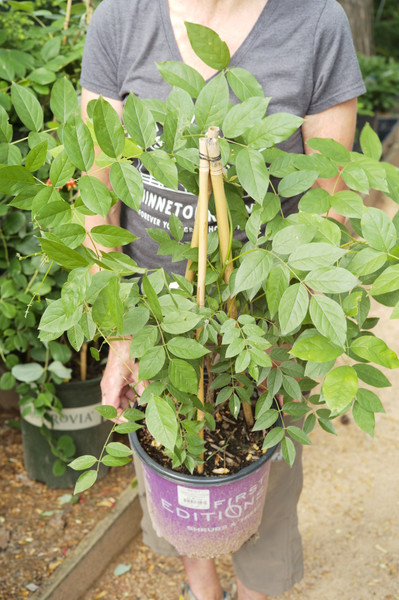Wisteria
Posted by Jessie Jacobson on Jun 30th 2024
Wisteria (American Wisteria)
Providing aesthetic charm, supporting pollinators, and adding sweet fragrance to outdoor spaces, Wisteria is a breathtaking flowering vine that’s perfect for arbors, pergolas, and trellises. Belonging to the legume family, Fabaceae, Wisteria is known for its cascading clusters of stunning flowers in blues, whites, and purples.
Native to China, Japan, and the eastern United States, this vine adapts well to most soil types as long as it’s well-draining. Wisteria benefits from an annual application of a slow-release organic fertilizer such as Espoma’s Organic Plant Tone. For abundant blooms, plant Wisteria on a trellis or arbor in a full sun location with a minimum of 6 hours of sunlight. Regular pruning is necessary to control the size of the Wisteria and to promote blooming. The best time to prune is late winter, but a summer prune may also be needed to maintain the plant’s shape and size. Pests and diseases to watch out for include aphids and powdery mildew especially during periods of high humidity. A regular application of cooper fungicide may be necessary if powdery mildew does emerge.
Wisteria’s rapid growth and dense foliage provide homes and safety to birds as well providing a nectar source for bees and butterflies. It is important to remember that all parts of the plant are toxic, which also means that it is deer and rabbit resistant but needs to be in an area away from curious pets and young children.
Blooming in late spring or early summer, Wisteria is covered with weeping, pendulous clusters of fragrant flowers. Wisteria is a fast-growing vine that reaches a height of 15'-25' ft when mature. Once flowers fade brown, fuzzy seed pods develop and add another element of interest as the plant moves into late summer and fall. With proper care Wisteria can live for over a hundred years providing a lifetime of breathtaking beauty. At Tonkadale, a couple of our favorite varieties are ‘Blue Moon’ and ‘Summer Cascade’.
Happy planting. See you at Tonkadale.

